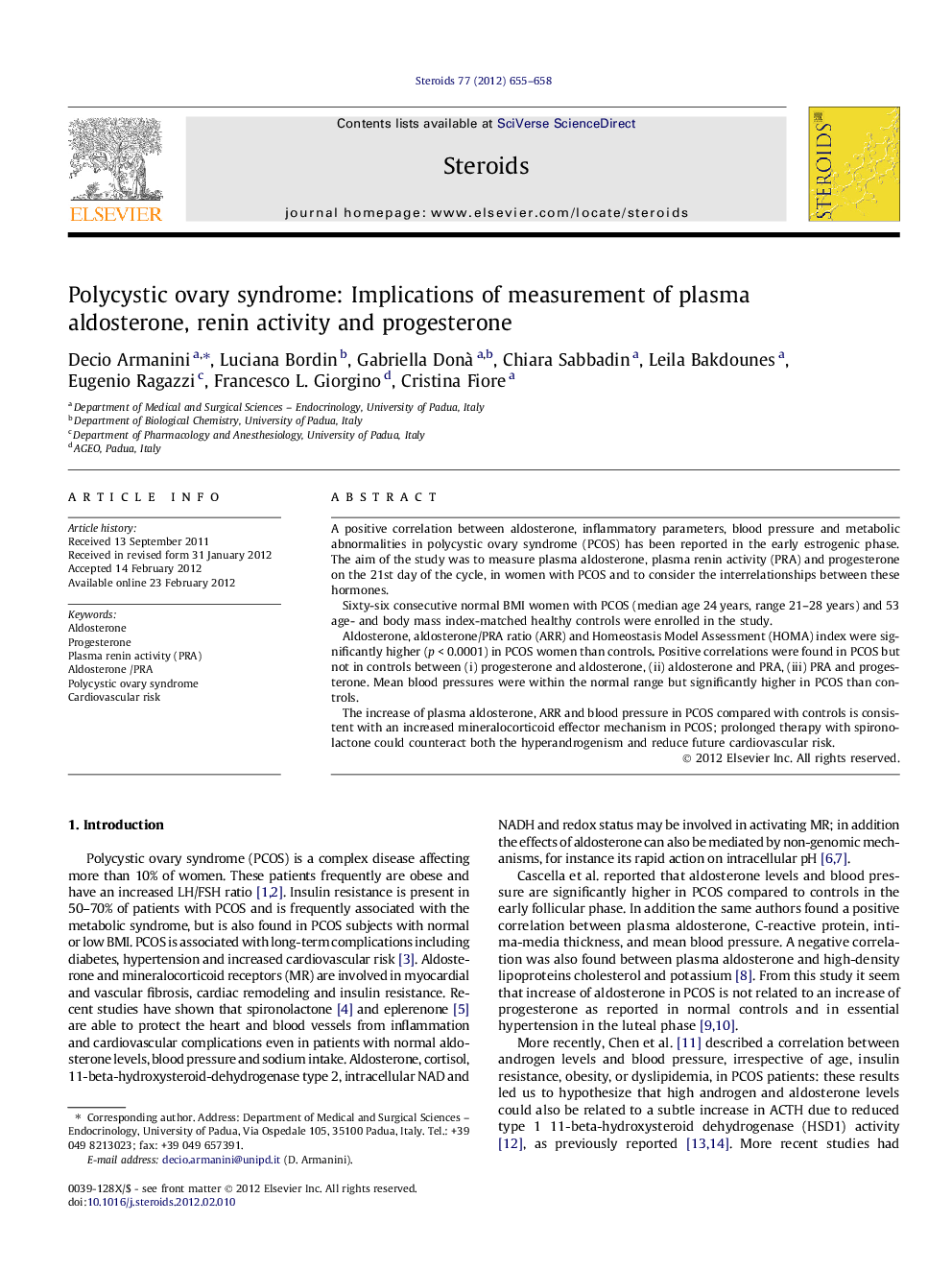| Article ID | Journal | Published Year | Pages | File Type |
|---|---|---|---|---|
| 2028052 | Steroids | 2012 | 4 Pages |
A positive correlation between aldosterone, inflammatory parameters, blood pressure and metabolic abnormalities in polycystic ovary syndrome (PCOS) has been reported in the early estrogenic phase. The aim of the study was to measure plasma aldosterone, plasma renin activity (PRA) and progesterone on the 21st day of the cycle, in women with PCOS and to consider the interrelationships between these hormones.Sixty-six consecutive normal BMI women with PCOS (median age 24 years, range 21–28 years) and 53 age- and body mass index-matched healthy controls were enrolled in the study.Aldosterone, aldosterone/PRA ratio (ARR) and Homeostasis Model Assessment (HOMA) index were significantly higher (p < 0.0001) in PCOS women than controls. Positive correlations were found in PCOS but not in controls between (i) progesterone and aldosterone, (ii) aldosterone and PRA, (iii) PRA and progesterone. Mean blood pressures were within the normal range but significantly higher in PCOS than controls.The increase of plasma aldosterone, ARR and blood pressure in PCOS compared with controls is consistent with an increased mineralocorticoid effector mechanism in PCOS; prolonged therapy with spironolactone could counteract both the hyperandrogenism and reduce future cardiovascular risk.
► Aldosterone is frequently increased in polycystic ovary syndrome PCOS. ► Aldosterone, progesterone and aldosterone/progesterone ratio are higher in PCOS than controls. ► Therapy with spironolactone could prevent cardiovascular risk in these patients.
